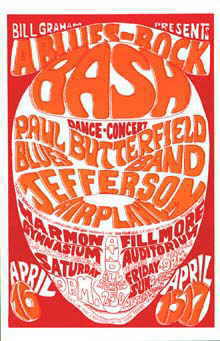Arthur Miller, All My Sons
Dana Polan, In A Lonely Place
Dorothy B. Hughes, In A Lonely Place
Endesha Ida Mae Holland, From the Mississippi Delta: A Memoir
Olson and Roberts, My Lai: A Brief History with Documents
Helen Benedict, Virgin or Vamp: How the Press Covers Sex Crimes
Barbara Ehrenreich, Nickel and Dimed
Recommended Text:
William Chafe, The Unfinished Journey: America Since World War II (Fifth Edition)

Charlie Parker
1) Thoughtful reading of assigned texts by dates noted.
2) Class participation and attendance (10% of final grade). Class participation includes contributions to class discussions, and may also include in-class quizzes given at the discretion of the professor. Consistent attendance is expected, including Library Workshop Feb. 10. All students are responsible for any material presented in class, including schedule changes, whether or not they are present.
3) 3-4 page primary research report summarizing at least one Fresno Bee and one national magazine report on any event of your choice from 1945 to the present. Students will sign up for due dates for their reports and present their findings in class (15% of final grade).
4) 1-2 page paper identifying a significant scene in All My Sons and listing who you would cast in each of the major parts. Due February 3 (5% of final grade). No late papers accepted.

Arthur Miller
5) 1-2 page paper identifying and analyzing three significant quotes/points from Polan, In a Lonely Place relating to the film and the novel. Due February 26 (5% of final grade). No late papers accepted.
6) 1-2 page paper identifying and analyzing three significant quotes/incidents/statements in From the Mississippi Delta. Due March 16 (5% of final grade). No late papers accepted.
7) 4-5 page paper analyzing My Lai essay and documents that explains the significance of at least three important points from the book’s essay and then brings in evidence from the documents sections to back up your interpretation. Due April 1 (15% of final grade). No late papers accepted.
8) 2-3 page paper identifying and analyzing two significant quotes/points from two of the case studies in Virgin or Vamp that address issues raised in Introduction and Chapter 1 (pp. 3-24). Due April 15 (10% of final grade). No late papers accepted.
9) 1-2 page paper identifying and analyzing three significant quotes/points/incidents/ statements in Nickel and Dimed. Due May 4 (5% of final grade). No late papers accepted.
10) 1-2 page research paper proposal due March 25 (5% of final grade).
11) 10-12 page research paper due Tuesday, May 18. (25% of final grade). No late papers accepted.

Gloria Grahame
All papers must be typed, double-spaced with standard margins (1-2 page assignments may be single-spaced), proof-read, spell-checked, include page numbers, and be turned in on time to be eligible for full credit. Reading discussion papers can only be turned in on the day discussions take place. Other papers if more than one week late will not be accepted. Students may not submit assignments via email. Grades are based on an assessment of both the content and form of each paper. Criteria for this assessment include:
< the accuracy and relevance of historical information presented
< the quality of analysis and thoughtful interpretation of this evidence
< the organization and construction of your argument
< the clarity of expression and eloquence of your writing.
Grammatical errors of a basic nature undermine the accuracy, clarity, and persuasive force of your paper, and therefore lower the grade given to your paper. Original thinking, passionate engagement with the text and topic, succinct phrasing, and creative use of language which enhance the presentation of your evidence and the power of your argument raise the grade assigned.

Course Grade
The grade for the course may be based upon more than just the mathematical calculation of grades received on required assignments. Class participation which demonstrates a strong engagement with the content and texts, improvement in the quality of analysis and writing over the course of the semester, and evidence of intellectual development can all contribute to your final grade.
